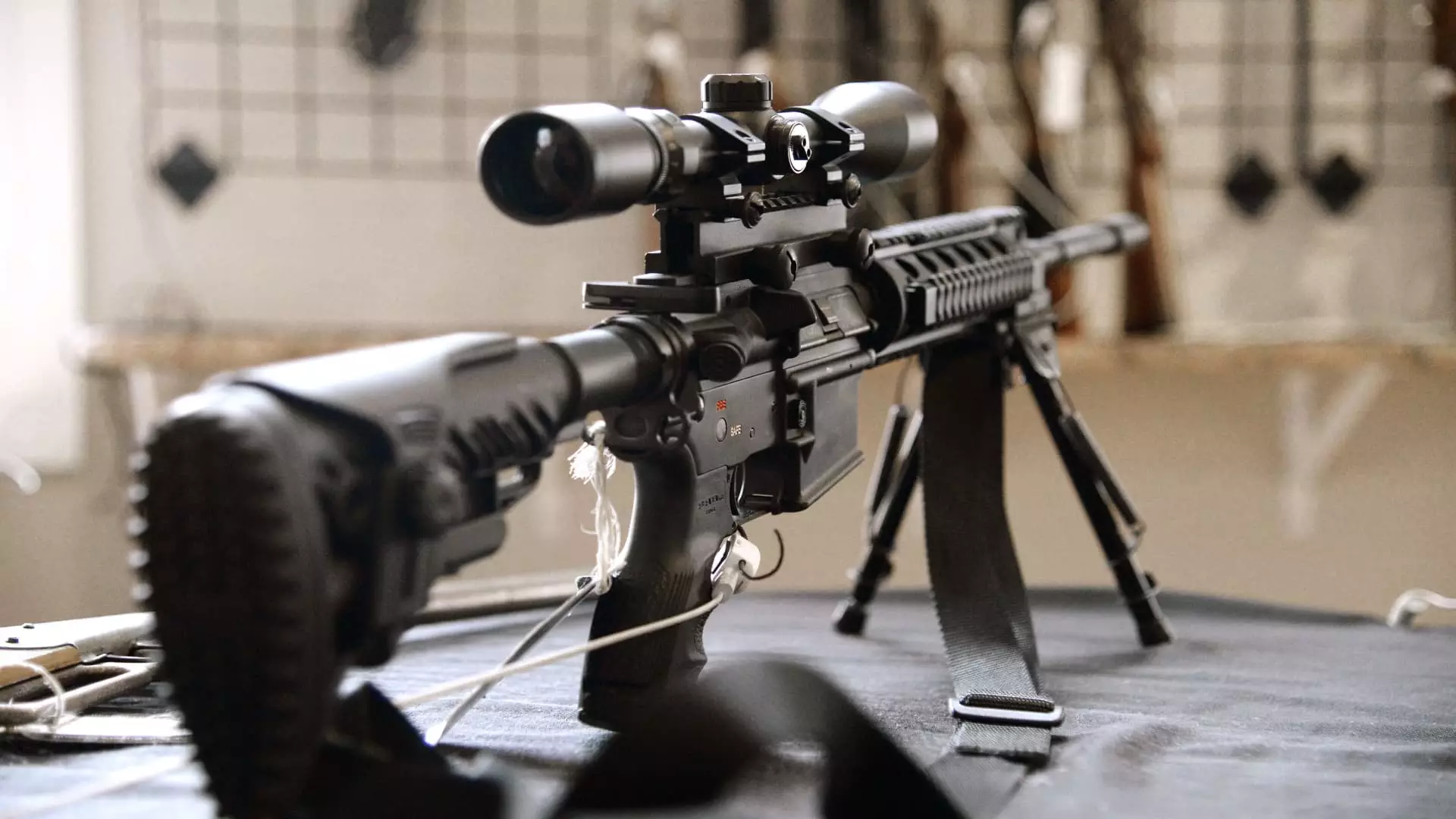Rhode Island, a small but significant state, stands at a critical crossroads as its Democratic-controlled House advances legislation aimed at banning the sale and manufacturing of numerous semiautomatic rifles commonly labeled as “assault weapons.” This legislative action is not just a routine procedure; it embodies the culmination of years of persistent advocacy for gun control, reflecting the sentiment of many citizens weary of senseless violence. Importantly, this proposed law now rests in the hands of Governor Dan McKee, who has publicly endorsed such measures. Should it become law, Rhode Island would align itself with ten other states committed to diminishing the presence of high-powered firearms—once outlawed nationally but now predominant in tragic mass shootings across the nation.
The decade-long battle for an assault weapons ban in Rhode Island underscores a glaring irony: despite the Democratic majority, the state legislature has consistently delayed decisive action on gun control. This hesitation reveals a complex interplay of political dynamics that often prioritize personal freedom over communal safety. Nonetheless, this bill, which restricts the sale and manufacturing of these deadly weapons—while notably not addressing possession—represents a symbolic victory that many advocates consider a stepping stone toward a more comprehensive approach.
Incrementalism and its Discontents
During floor debates, Rep. Rebecca Kislak articulated a pervasive truth: while the bill is but a “marginal move” towards gun safety, direct inaction would signify surrender. For Kislak, voting for this legislation exemplifies a commitment to doing something, even when the full measure of action remains unrealized. This perspective highlights the challenging reality of incremental change in policymaking, where advocates are often compelled to take partial victories to foster broader acceptance of future measures.
Conversely, detractors voice outright skepticism toward the efficacy of this legislation, arguing it simply burdens law-abiding citizens without confronting the criminals who perpetrate the violence. Republican Sen. Thomas Paolino’s assertion encapsulates a common critique that reverberates through conservative opposition; if this legislation does not curtail criminal behavior explicitly, what is its real purpose? Such skepticism, however, often glosses over the profound need for establishing a legal framework that prioritizes public safety and accountability.
Even more paradoxically, opposition is not confined solely to political adversaries. Well-known gun control advocate David Hogg, a survivor of the horrific Parkland shooting, voiced disappointment, calling this proposal potentially the “weakest assault weapons ban in the country.” Hogg’s critique emphasizes a broader concern that mere prohibition of sale—without addressing possession—might fall short of ensuring public safety. The feelings of disenchantment expressed by some advocates serve as an essential reminder that even within movements for change, expectations can often be misaligned with political realities.
Legal Implications and Future Considerations
The battle around assault weapons bans gains further complexity as national narratives play out in courtrooms across the United States. While the Rhode Island bill delivers a potential lifeline for public safety, legal challenges loom on the horizon as gun rights groups consider invoking the Second Amendment. The conservative majority in the Supreme Court has signaled readiness to take on such matters, with some justices previously dissenting on related issues. The future of this legislation thus remains precarious, hinging not merely on political consensus but also on judicial interpretation.
Interestingly, the swift rise in popularity of AR-15-style firearms showcases the contentious intersection of consumer culture and gun rights in the American psyche. Advocates argue that these weapons, now recognized as stock-in-trade for mass shooters, must be stripped from circulation to protect citizens. The current dialogue suggests a turning tide; the argument has shifted from wholesale ownership toward acknowledging the critical need for legislative action that could potentially save lives.
As Rhode Island embarks on this initiative, it invites scrutiny, criticism, and fervent support, all of which reflect the divided landscape that is gun control in America. The stakes are decidedly high, not only for Rhode Island but for the broader national conversation surrounding the profound complexities of legislating firearms in a nation steeped in a culture of gun ownership. It is a microcosm of a larger struggle, one that continues to grapple with the tension between freedom and security—a quintessentially American dilemma.

Leave a Reply